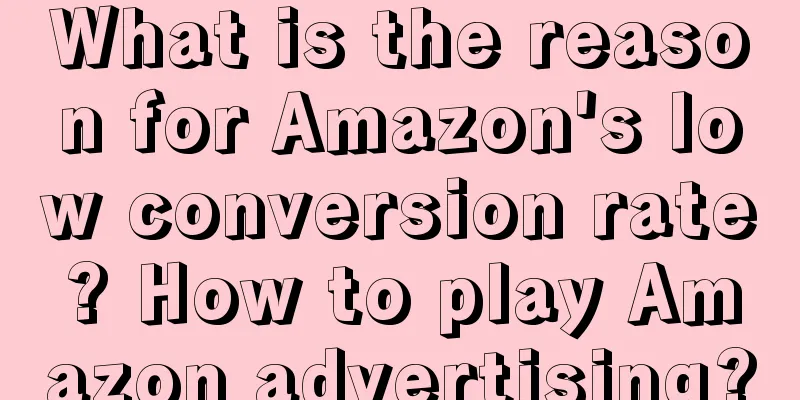Marketing to the left, branding to the right

A few days ago, I wrote this in my WeChat Moments: Starting from 2023, marketing will go left and branding will go right. Marketing will be included in business operations, and branding will be included in entrepreneurial strategy. This statement resonated with many people, and some people also raised questions. Today, I will talk about this in detail. The purpose of saying left and right is to distinguish the things that many people have been confusing. They were not the same thing before, and they will be even more different in the future. So which one is more important, marketing or branding? Which comes first and which comes later? I know you will have such questions. After all, this magical era is full of single product miracles such as Pinduoduo and live e-commerce with monthly sales of billions, and "new brands" such as Guanxia and Fanji that focus on content and have a strong tone are constantly emerging. Should we run for our lives or work meticulously? How should we choose? Or in other words, is this a choice that must be made? My answer is this: Brand and operation are two management logics that an excellent enterprise must have at the same time. The reason why we discuss which is more important is to think about the problem according to the stage of the enterprise. At this stage, which one is the most urgent. In the end, brand must be the destination that the enterprise cannot avoid in the end. Marketing serves to build brands, and building brands serves to expand advantages and long-term prosperity. Unfortunately, the two management logics, which are not contradictory, are often misinterpreted and treated as two options that are neither this nor that. Just like "left" and "right" sound like they can't be both left and right. But is that really the case? 01 Brand misunderstanding: pretentious, high-priced, and expensiveMore than once, founders have told me: We don’t have the spare money to do branding now. More than once, brand directors have complained awkwardly: I thought I was doing brand-related business, but it turns out that every job I do is tied to sales assessment. Vague values, unquantifiable outputs, attempts to support high gross margins with high prices that lead to a shrinking market, and burning money for formalities, these are the most honest impressions many people have of the work of branding. There are even pragmatic entrepreneurs with a dealer background who directly declare: I don’t make brands, I only make white-label products. I go through channels. As long as I can make money, white-label products are better than branded products! Some people also say: As long as I have a scale and do it all year round, won’t I have a brand? Basically, there are two kinds of misunderstandings about brands in the market: one is the "face-to-face" group, and the other is the "natural" group. The face-to-face group sees branding as a scourge, an unjust act that invests manpower and money without a return, and that branding and marketing are incompatible. The other group sees brands as "extraordinary things" that you get naturally without doing anything. In fact, brands are very pragmatic, and they can be built without spending a penny. To be extremely simple, it can be just a management process from the perspective of an entrepreneur and founder. A company has N lines of internal management processes, including finance, goods, sales, and R&D. You will find that there is only one line that is based on the perspective of the company's founding value. Why do companies need such a management line? If such a line is missing, a company is likely to overturn on the fast-paced road. This line is not only the company's safety line, but also the company's own "optimal navigation route" and the "golden line" for internal personnel selection, training and retention. Our companies are still young and often fail to realize the value of such a line. Few entrepreneurs are willing to spend time on such things, let alone money. In 2016, I was invited to participate in a roundtable discussion on brands. The participating brand marketers included brand managers of internationally renowned brands and marketing directors of well-known domestic emerging companies. Interestingly, when the topic of brands came up that day, the emerging companies talked about how to double their growth by all means, while the managers of international brands talked about "brand safety". When they heard the word "brand safety", the marketing directors of several emerging companies were either confused or didn't take it seriously. Have you noticed that in the 40 years since the reform and opening up, we still have more trade and fewer brands; more people selling goods and fewer people doing things; more famous people and fewer brands. Our market has never lacked smart businessmen, but it has always lacked businessmen who "have a little idealism in them." This ideal, in a broad sense, is a brand spirit that can be passed down from generation to generation. In a narrow sense, with this ideal, the communication cost of recruiting capable people in an enterprise is lower. So, how can those pragmatic companies that are running blindly and practicing lean marketing also adopt the dual-line thinking of their brands? 02 The Art of Management: Grasping Both Hands with StrengthAnyone who has started a business knows that being a boss is a very abnormal job. You often have to do some contradictory things: sometimes you have to be grand and majestic, sometimes you have to be calculative; sometimes you have to attack quickly, sometimes you have to endure loneliness. In marketing and branding, founders still need to continue to uphold the abnormal spirit and do both well. Marketing is an operational action, which emphasizes seeking truth and being pragmatic and exploring opportunities. Branding is a corporate strategy, which emphasizes early layout and long-termism. But sometimes you will inevitably encounter a dilemma and be unable to do everything. When you are extremely busy, should you focus on marketing, which is "one point of investment equals ten points of income", or brand building, which is "sitting and talking, all employees are engaged in empty talk"? Resources are limited, and human, material and financial resources all need to be allocated. Should you spend people, money and resources on things that are not so important at the moment? The principles of three-stage brand building are for your reference: The first stage: before scalePrinciple: Clear definition and management, no placement and investment. The scale of the enterprise has not yet taken shape. This is the most difficult starting stage. Everything seems to be more important than the brand. Is it true? Yes. People know etiquette when they have enough food and clothing, let alone enterprises. Making money, increasing volume and scale are the most important things to do at this stage. The limited money and people can be allocated to marketing activities as much as possible, and try every possible way to expand the scale. Because scale can reduce costs and summon resources. So, is it enough for managers to focus on business operations and do whatever it takes to attract new customers? Here is a common practice of managers being lazy and violating regulations: It seems that this stage does not require employees, departments, or budgets to build a brand, but this stage requires managers to invest their personal time to learn and define. Let me put it this way, in early-stage companies, everyone is racing to scale. Whether the founder is branding or not may not make much difference, but whether the founder "understands" what a brand is makes a huge difference. The so-called "understanding" means respecting its professionalism and understanding its role. When opening the door to do business, it seems that all the businesses are the same, but in fact, there are worlds of difference inside. Since brands have played an increasingly important role in the century-long business history, they have actually demonstrated the value of a company's "roots". No matter how big the scale is, as long as it is "rootless" and all employees are "soulless", it is only a matter of time before it loses power. In the early days, the founders took the time to understand and learn, so that the company can be defined and managed by the brand line from the first day. Looking back, this management line is the only management line that belongs to the "founder's responsibilities". What kind of people to recruit, what kind of choices to make, what kind of money to make, what style of a group of people, what kind of customers to get... everything depends on the founder's brand level. The founders have made great contributions to the clear definition, the clear explanation of logos and symbols, and the real implementation of people and values. However, at this stage, for brands, do not launch and invest on a large scale. When making a budget, do not reserve extra budget for this part. At this stage, take advantage of free resources. "Have the brand in mind, learn from the brand in action, and do marketing on the ground." Studying the marketing information gaps in those corners is the serious matter. Once again, clearly define, learn, and manage. These are not empty words, but require founders to spend time on them. If they just nod their heads and don’t invest their own time, sooner or later they will have to come back to make up for the lessons. By that time, the company may have suffered a great loss. It is not okay to hire a brand marketer and push all the responsibilities to him. What is needed at this stage is for the founder to understand it himself, not to stick with someone who seems to understand. Since the brand marketer is here, he has to work. During this period, there is no brand work for him to do and no budget for him to spend. If the founder is unwilling to learn, the brand marketer will be anxious. Therefore, at this stage, the founder should find a teacher and spend time practicing with his own company for free. The second stage: scale-up stagePrinciple: Investment must be made in conjunction with brand management. When you start to scale up, it is like accelerating down a steep slope, with the speed of a tsunami. At this time, enterprises often don’t care about “building brands”. Who would want to embroider when they are working hard? But in fact, this stage is the most cost-effective time to build brands in conjunction with the rapid growth of scale. Wait until this period is over, when the speed slows down or the growth is weak, and then build brands (the magical thing is: everyone often chooses to do it at this time), it will waste more energy to heat the pot again. When you are starting to scale up, everything is going smoothly, and your popularity, resources, and influence are at their best. At this time, investing in brand management will achieve twice the result with half the effort. It is time to start building a brand platform within the company. A complete set of brand management systems, CIS, brand strategy, brand advertising, and content can be put in place by then. This is the best time to "grab a seat." People are willing to believe the information conveyed by a brand in a fast-growing period. However, a large number of fast-growing brands have missed this good brand building opportunity perfectly. At that time, they still "aggressively market" and continuously release information to attract new customers and expand their scale. The brand effect brought by these information is only "working hard and fast" and will not really add points to the brand itself or even leave an impression. This is why we find that those Internet celebrity brands or potential brands that have experienced a very large expansion period can really disappear "without a trace" when they disappear in the later period, because they have not done any work for the brand. The third stage: After reaching scaleBrand management is the most important job of core managers When the scale has grown, or even stabilized at a considerable scale, the company has become a "well-known" or "industry-influential" company. At this time, brand management should be one of the most important tasks of the core managers (founders, CEOs). Why? Because at this time, the company needs to maintain long-term stability and defend against potential competitors. Internally, there is the relationship management with employees, suppliers, distributors, and investors, and externally, there is the relationship maintenance with customers, consumers, peers, government, media, social organizations, etc. All these relationships are called brands. At this time, you will suddenly find that there is no such functional department in the company to do this. The head of HR is in charge of employee management, and you will find that he is mainly busy with selection, training, retention, and even recruitment. The head of PR is in charge of media relations, and you will find that he is mainly busy issuing press releases according to regulations. As a result, the negative impression of the company is inadvertently spreading through finance, layoffs, customer service, etc. No one can see this process of reduction, and no one is responsible for it. Core managers still feel that they are very busy. Busy with listing, relationships with major customers, and strategy... In fact, all the things he was busy with were in charge of by designated managers. However, the comprehensive brand management of the enterprise, which was something that the top leader had to personally take charge of, was not in charge. It was impossible for the brand director to be responsible for all the real brand relationships of the enterprise (authority and vision). The brand director was just a professional assistant to the founder of the enterprise in terms of branding. The real person in charge of the brand of an enterprise was the founder and CEO. At this stage, many companies simply give up on branding. The reason is that the company is already well-known and has good business development, so they don't see the need to do this. However, when the frog is boiled in warm water, it is also very comfortable. Branding may not be a weapon for quick success, but it is indeed a trick to prolong life. The most important thing for managers at this stage is to build a brand that is impenetrable and build the most solid threshold for the company. Unify people's hearts internally and unify reputation and minds externally. What’s interesting is that if you do it seriously, you will find that branding itself is a form of strategy, and it is a way to look at the company’s strategy from an external perspective. It is more sober and useful than doing strategy behind closed doors. There are three stages and three principles, and there are also some flexible methods to apply them when implementing them. Author: Li Qian WeChat public account: Li Qian Talks about Brands (ID:liaotian78), founder of Guanxi Brand Agency and former managing director of Qingshan Capital. |
Recommend
The Great Reconciliation of the Century: Taobao Can Now Buy Traffic from WeChat
Recently, Alimama and Tencent Advertising official...
5 safe and reliable ways to attract traffic from Xiaohongshu
As a content-driven social platform, Xiaohongshu p...
Is it easy to be an Amazon customer service representative? Is it hard to be an Amazon customer service representative?
As the global e-commerce giant Amazon grows strong...
What are the fees for individual cross-border e-commerce? How can individuals do cross-border e-commerce?
With the rapid development of cross-border e-comme...
Guide to Asking for Help | Don’t let not knowing how to ask for help ruin your career!
I believe that the question of asking for help is ...
Growth Methodology | What is in the underlying framework of fission?
I have read a lot of methodologies about fission l...
10 pitfalls that ordinary people will fall into when starting an e-commerce business
Based on personal experience, the author of this a...
How to choose words for Shopee titles? Introduction to word selection methods
As a cross-border e-commerce platform, Shopee is a...
Live streaming to sell goods, is this TVB’s “do or die fight”?
What kind of sparks can TVB and live streaming bri...
How do I fill in the order number for an Amazon order? Why is there no information on the Amazon order number?
For merchants, order packaging and shipping is a b...
The ups and downs of brand marketers this year are all in these 16 keywords
Today's marketing has gradually transformed fr...
How to provide after-sales service for items purchased from Amazon? What after-sales service is available?
Today I will introduce you to some content about A...
Tell you from the market dimension: What should you sell when starting a business?
In the Internet, no matter what project we need to...
Online literature platform "rushes into the short drama circle": more than 600 adaptation authorizations in one year, giving both IP and money
Whether it is a horizontal screen split-revenue sh...
Young people who are so sophisticated and stingy are turning supermarkets into outlet malls
With the development of the new economy, consumers...









